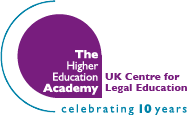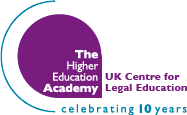Chair's report: Kim Everett
 Parallel Session 4 (Chancellor’s 1)
Parallel Session 4 (Chancellor’s 1)
Chair: Kim Everett (University of Greenwich)
Mismatches between student expectations and reality: a problem for student engagement
This paper firstly identified mismatches between student expectations and reality as a possible cause of lack of student engagement and secondly sought to explore ways in the problem might be resolved. These mismatches, it was argued, work against student engagement at a number of levels; mismatches between student and staff expectations of the nature, content and purpose of the degree. Students were often making uninformed choices based on little more than a glossy brochure with no real understanding of the demands of a law degree in terms of attendance and hours of study required. Similarly students had unrealistic expectations about their employment prospects at the end of their training. The realisation of the possibility of these expectations being unfulfilled leads to student demotivation.
The authors, Cherry James, John Koo and Mike Rodney (London South Bank University), identified two means by which these mismatches might be reduced. Firstly, the development of an effective and responsible communication strategy might serve to close the information gap. The authors recognised there was a tension between the giving of accurate information and marketing. Secondly, law departments should strive to improve the quality of student-faculty interaction by a implementing a pedagogy of care.
Images of law, law schools and legal education
Recognising that the wrong choice of institution, course or location as significant contributory factors can cause students to leave or fail to progress at University, this paper argues that law school websites have a role to play in trying to achieve a match between student, institution and subject. The authors, Graeme Broadbent and Pamela Sellman (Kingston University), presented results of their work in progress that seeks to identify some of the characteristics of a number of law school websites and the messages that they convey. The paper recognises the potential conflict between the provision of accurate, honest and useful information and the demands of marketing which may skew what is made available to prospective students.
Last Modified: 11 February 2011



Comments
There are no comments at this time